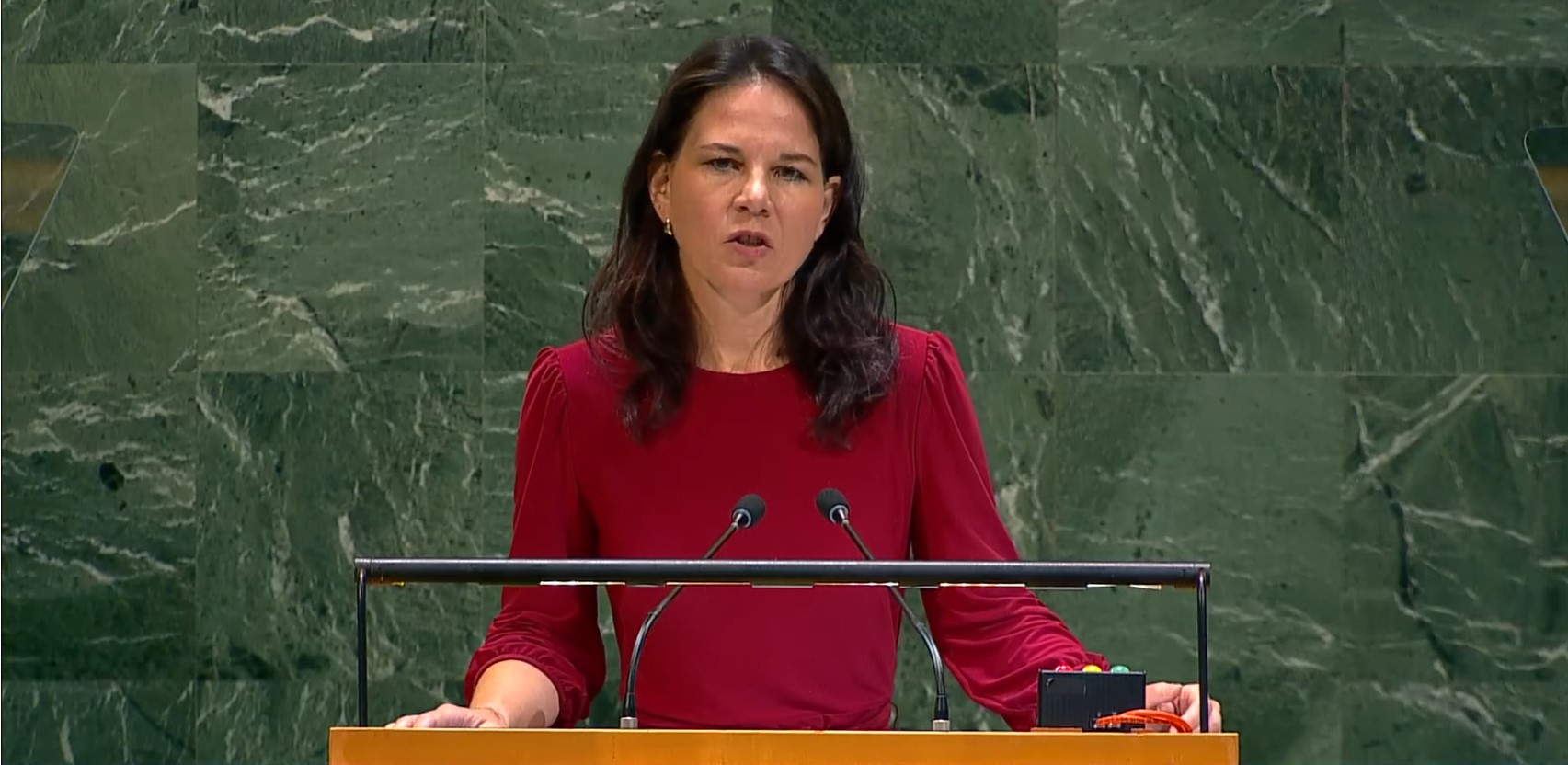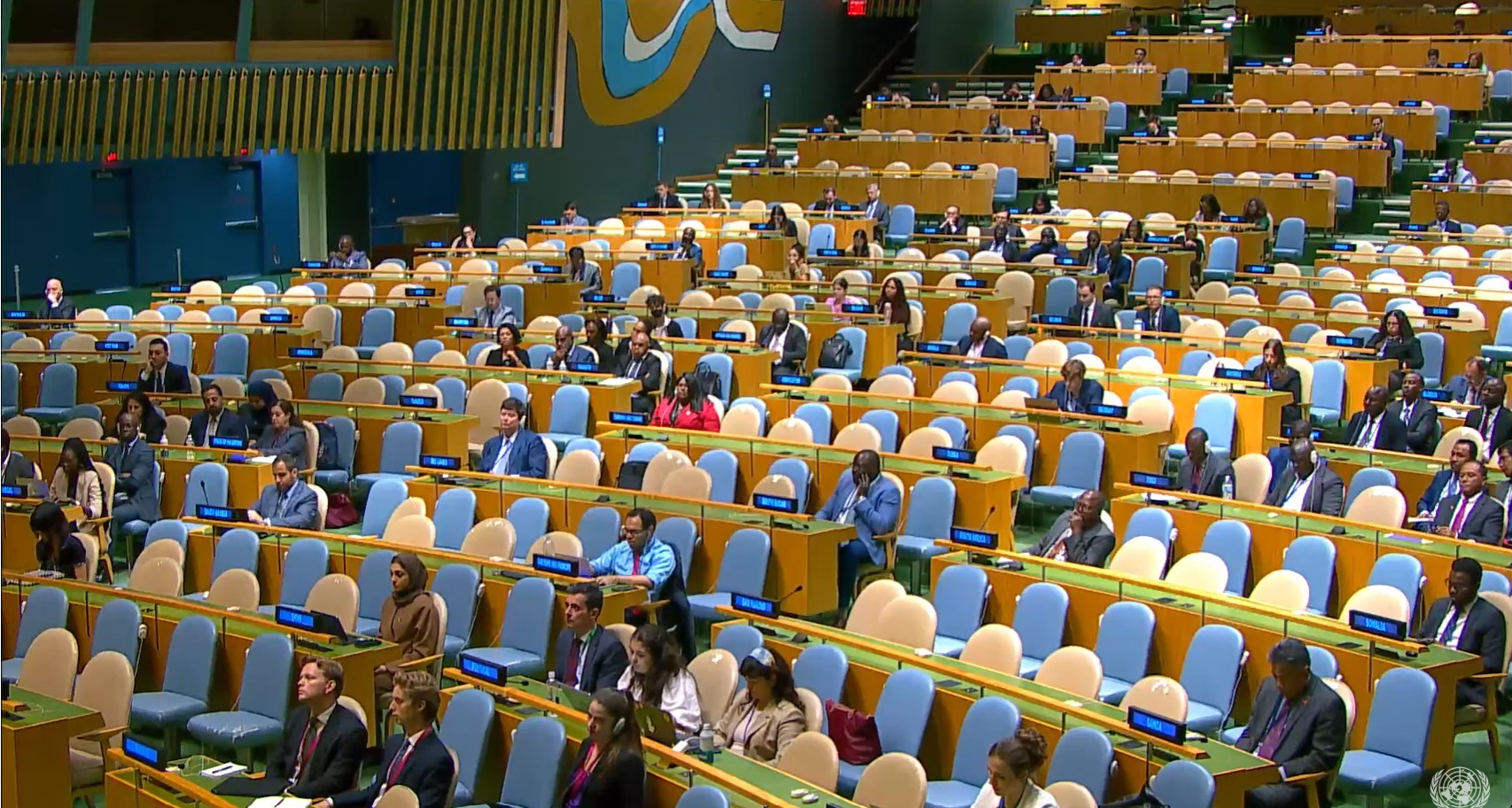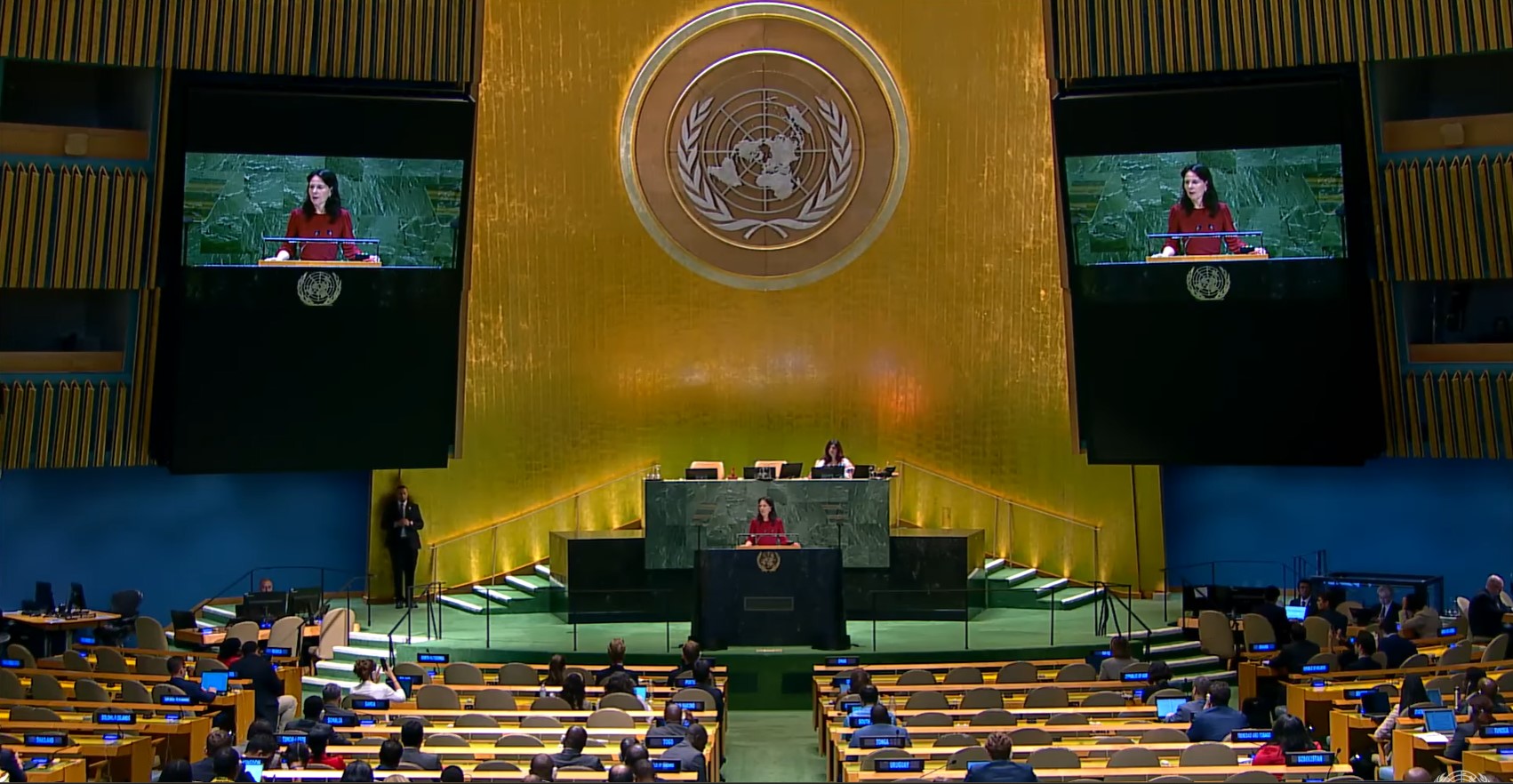CelebrityMedia Editor’s Note: As the 80th United Nations General Assembly general debate concluded, the President delivered closing remarks underscoring the UN’s indispensable role at a global crossroads.
The address highlighted key themes—peace and security (Gaza, Ukraine, Sudan), accelerating action on climate change and the Sustainable Development Goals, gender equality, and the governance of artificial intelligence.
The President urged member states to turn the political momentum of this Assembly into concrete action: advancing immediate humanitarian measures and the two-state solution, pushing forward climate and development finance reform, and supporting the UN80 reform agenda. He emphasized that only by upholding the Charter, international law, and working in unity can humanity shape a safer, fairer, and more sustainable future.

We've heard the last speaker in the general debate. I will now deliver my closing remarks.
Excellencies, ladies and gentlemen, at the beginning of this week, we referred to the United Nations as the house of diplomacy and dialogue, standing at a crossroads, a place where we gather to have hard conversations during challenging times. If this high level week is an indication, this house is fulfilling that purpose. The United Nations is still relevant.
Over the past week, we have heard from 189 member states, including 124 heads of state and government. I thank you for your proactive leadership, for embracing diplomacy, for not shying away from the hard topics, for proving why our United Nations remains critical, especially facing a crossroads.
I would like to thank the host country, the United States, for their continued and generous support, reminding that the host country agreement obliges to give access to all delegations, as otherwise the House of Diplomacy would not work. I express my deep gratitude to the city of New York, particularly the NYPD, as well as colleagues across the UN secretariat for making the high level week possible. Finally, I thank my OPGA team led by my chef cabinet for their tireless dedication, their countless briefing notes and for being my ears and eyes throughout this high level week.
Across the week, certain themes resonated above all others. Chief among them, peace and security. Gaza, Ukraine, Sudan, and the many forgotten ones. The clear message was member states must do more to protect and feed starving civilians in Gaza, to return peace to Ukraine, to protect women and girls in Sudan. This organization is only as strong as our collective will to uphold the principles of our charter and international law. And when we do, progress follows.
Monday's high level international conference on the peaceful settlement of the question of Palestine demonstrated clearly that what happens in this hall matters. The conference, coupled with the New York declaration, showed diplomatic movement on an issue long considered immovable. But while we are gaining traction politically, on the ground the situation remains catastrophic and unacceptable.
We should not delude ourselves. The real test now is whether the momentum generated here can be translated into tangible short-term measures in and for Gaza—an immediate ceasefire, a surge in humanitarian aid for civilians, the immediate release of the remaining hostages—and lay the foundation for a peaceful long-term perspective: the realization of the two-state solution. The only way to achieve lasting peace, security, and dignity for both Israelis and Palestinians.
The charter is not only a blueprint for peace, it's also a vision for shared progress across every pillar. Dozens of delegations spoke on the impacts of climate change and the ticking clock we face in delivering on the sustainable development goals by 2030. That clock does not stop while we are here in this room.
I don't know if you were in the hall, but as the prime minister of the Bahamas was delivering his remarks here, his country back home was bracing for the landfall of a cyclone. It's happening now. Climate crisis won't stop if you deny it. The climate crisis is the biggest security threat in this century. We face it together or we suffer alone. Conversely, if we work together to tackle climate change, we can capitalize on the benefits all together.
Last year alone, investment in renewable energy amounted to two trillion US dollars. So, as you can see, there are also positive tipping points. Looking at the amount invested in renewable energy, there's no way back as no investor wants stranded investments. And thus I commend member states who joined the UN climate summit and pledged stronger, more ambitious climate targets in the light of COP 30 in BM.
However, we are still not as far as we need to be and financing is the clear obstacle. Financial reform was mentioned repeatedly throughout the general debate and discussed in detail during the first biannual summit for a sustainable, inclusive and resilient global economy. The commitment made in 2015, repeated last year in the pact for the future, must be met.
To build resilience for countries facing ruinous climate consequences, we need to unlock financing. The technology is there. The need is there. We now have to match it. And make no mistake, this is not charity. Addressing these borderless challenges and financing sustainable development is an investment in our collective future. Investing into green technologies and fighting the climate crisis is our best security protection.
Excellencies, I would also like to take this opportunity to commend delegations for engaging in sometimes challenging discussions around SDG-related issues, including the high level meeting on non-communicable diseases and mental health, the 30th anniversary of the world program of action on youth, and the global dialogue on artificial intelligence.
The discussion on AI in particular lent only further precedence to the argument that we are better together. Few of us would be comfortable leaving the benefits or risks of this immense resource in the hands of a few. The opportunities are vast—as we discussed all together—from farmers accessing plans for resilient seeds, to city planning, to disaster risk management. AI is a tool that must be harnessed for all of humankind, equally, in a controlled manner.
This last point bears repeating, as the risks of AI are becoming only more prevalent, and age-old biases are being perpetuated by algorithms, as you can see for example when 99% of sexually related deep fakes are targeting women and girls. Yet, as we also heard and saw on Monday’s celebration of 30 years since Beijing, when female leaders spoke one after the other, there’s power in joining forces, in taking the right course at the crossroads and doing the right thing.
So many strong female presidents, many the first of their country, all reminded us that women’s rights are the yardstick of freedom of a society. If women are not free, eventually no one will be free. But the opposite is also true. If women are free, finally everyone will be free. If women are not represented equally or participate equally in societies, economies perform worse. Some estimates note that closing the gender gap would add 7 trillion to the global GDP. And a few words drew applause from this audience as often as that of the mention of a future possible Madame Secretary-General.
Excellencies, throughout the week, there were moments of energy, even electricity, where we really felt the collective will to do better, to reach further, to choose the right path at the crossroads. It's an energy that reminds us that this institution indeed matters. That we need it more than ever. An energy that also proclaims now is the time to grow and change.
Colleagues, this is an energy, a moment in time that we need to grab and run with. And the conditions are there. Indeed, UN80 and the reform agenda was, as I say, the hot topic throughout the week. The Secretary-General's report on mandate implementation review, the revised budget, and his proposals for structural changes and programmatic realignments offer us a concrete pathway to make this institution better, stronger, more effective, fit for purpose.
But this is not only about trimming budgets. It's about strengthening delivery. It is about priorities. For that reason, it is important that delegations take the discussions here back to their capitals. Discuss also back home in national parliaments how every government can constructively support and implement these processes in a way that makes this institution work better, deliver better, for all of us, but especially for those who still look to the streaming blue flag as a sign of hope even in the darkest hours.
For those who have the benefit of living in peace and social security. And as recent surveys showed, even in spite of all global narratives, people still value the benefits and necessities of the UN. On this point, I would like to thank the many delegations who responded to my call for a positive reflection on the UN's 80th anniversary.
We have heard dozens of statements infused with this dream of better together—of countries who freed themselves from colonialism to join as an independent state in the family of nations; of countries like my own who reunified because of the international community; of countries who sought support from the UN for mediation, for peacekeeping, for democratic reform and relief. Even if we have not always succeeded, we have always tried.
Excellencies, these examples highlight specifically why this organization was created—to tackle the problems no country alone can solve, to support others in their times of need. This week's general debate with strong engagements and impassioned words showed that we are capable of finding the strength to lift up our common leadership, to find collective solutions and to take the right path at the crossroads.
Let us go forward in this spirit, as also outlined in our just launched year-long campaign. Let us be inspired by the legacy of our past and daring for a better future. That is: better together, unafraid, unbroken, united.
I thank you.


